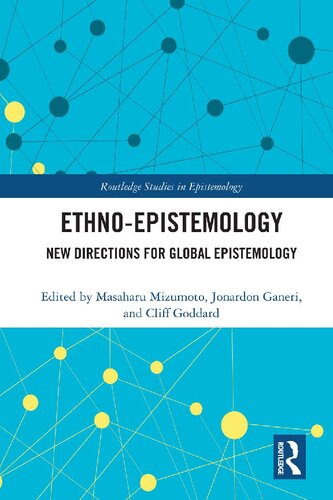

Most ebook files are in PDF format, so you can easily read them using various software such as Foxit Reader or directly on the Google Chrome browser.
Some ebook files are released by publishers in other formats such as .awz, .mobi, .epub, .fb2, etc. You may need to install specific software to read these formats on mobile/PC, such as Calibre.
Please read the tutorial at this link. https://ebooknice.com/page/post?id=faq
We offer FREE conversion to the popular formats you request; however, this may take some time. Therefore, right after payment, please email us, and we will try to provide the service as quickly as possible.
For some exceptional file formats or broken links (if any), please refrain from opening any disputes. Instead, email us first, and we will try to assist within a maximum of 6 hours.
EbookNice Team

Status:
Available4.7
40 reviewsThis volume features new perspectives on the implications of cross-linguistic and cultural diversity for epistemology. It brings together philosophers, linguists, and scholars working on knowledge traditions to advance work in epistemology that moves beyond the Anglophone sphere.
The first group of chapters provide evidence of cross-linguistic or cultural diversity relevant to epistemology and discuss its possible implications. These essays defend epistemic pluralism based on Sanskrit data as a commitment to pluralism about epistemic stances, analyze the use of two Japanese knowledge verbs in relation to knowledge how, explore the Confucian notion of justification, and surveys cultural differences about the testimonial knowledge. The second group of chapters defends "core monism"―which claims that despite the cross-linguistic diversity of knowledge verbs, there is certain core epistemological meaning shared by all languages―from both a Natural Semantic Metalanguage (NSM) and skeptical perspective. The third cluster of essays considers the implications of cultural diversity for epistemology based on anthropological studies. These chapters explore real disparities in folk epistemology across cultures. Finally, the last two chapters discuss methods or perspectives to unify epistemology despite and based on the diversity of folk intuitions and epistemological concepts.
Ethno-Epistemology is an essential resource for philosophers working in epistemology and comparative philosophy, as well as linguists and cultural anthropologists interested in the cultural-linguistic diversity of knowledge traditions.